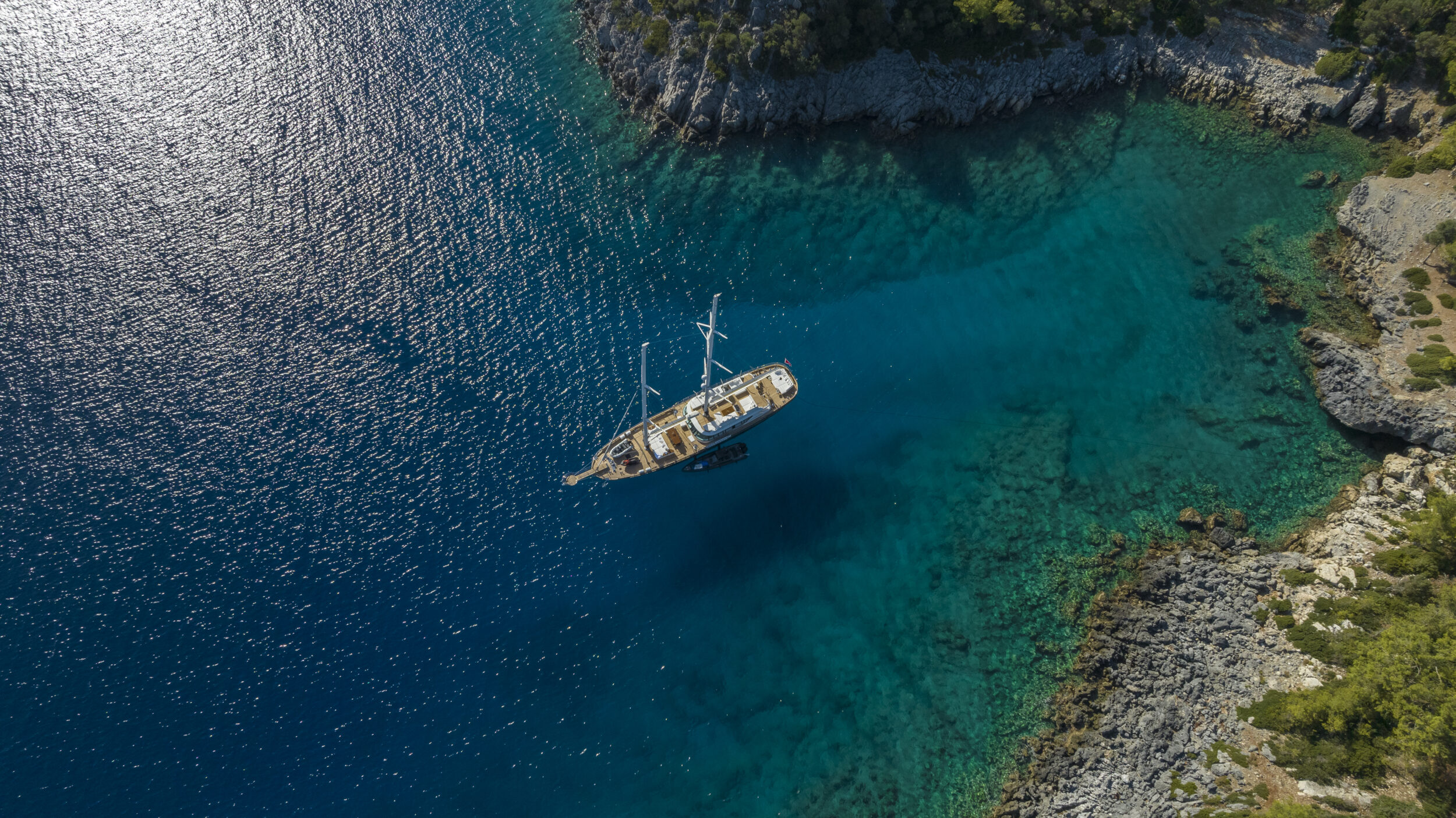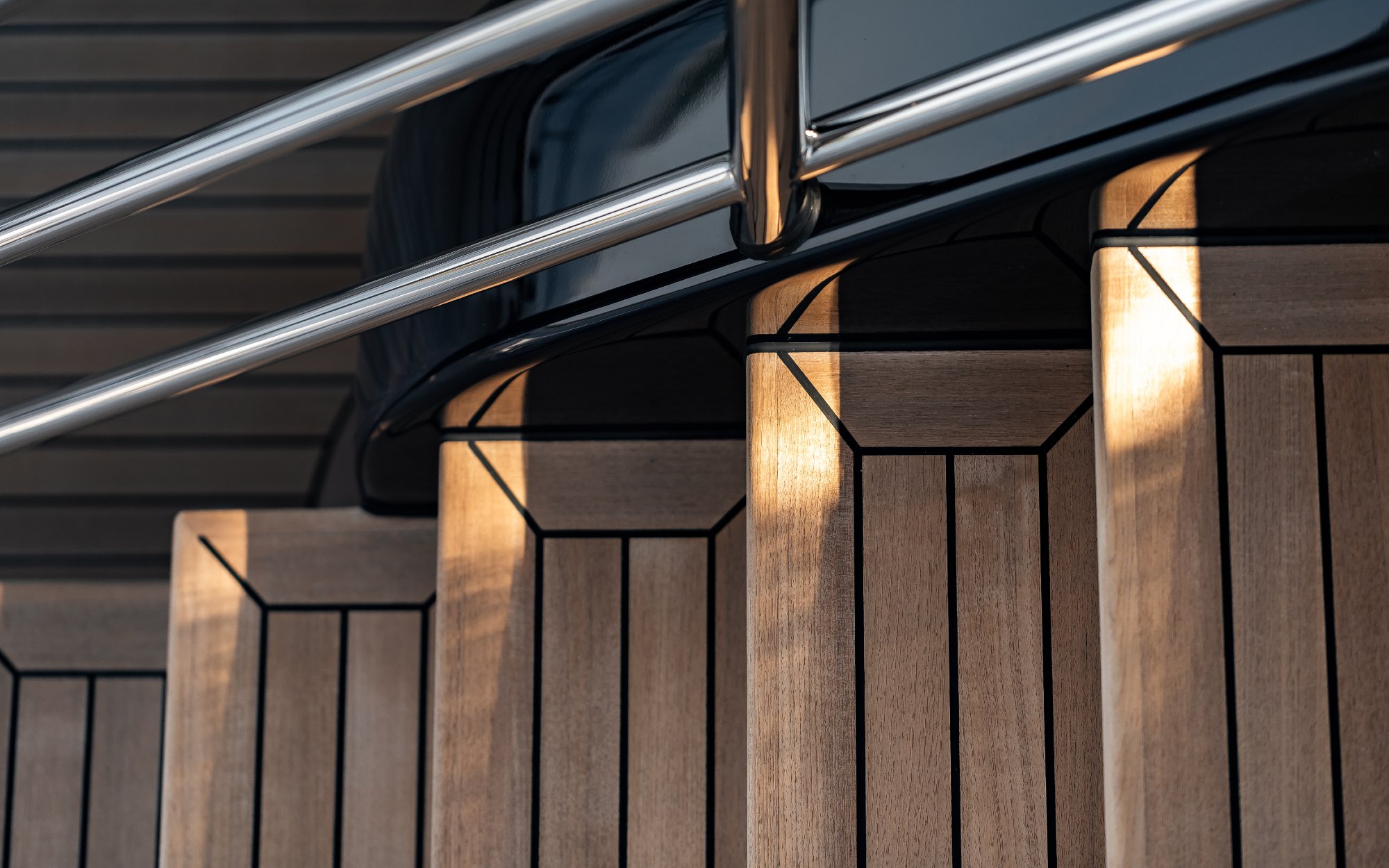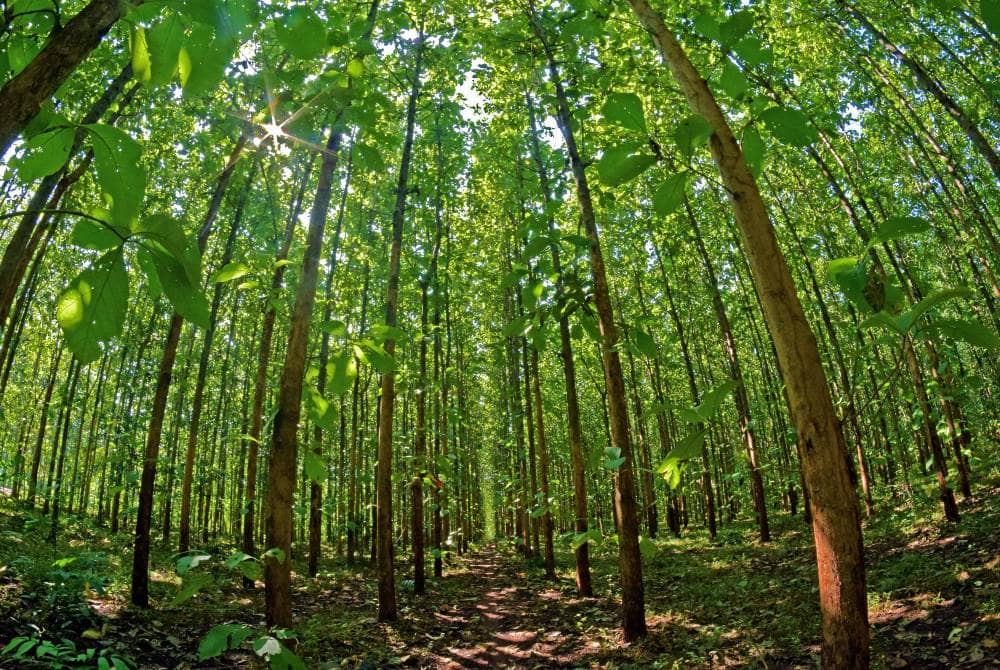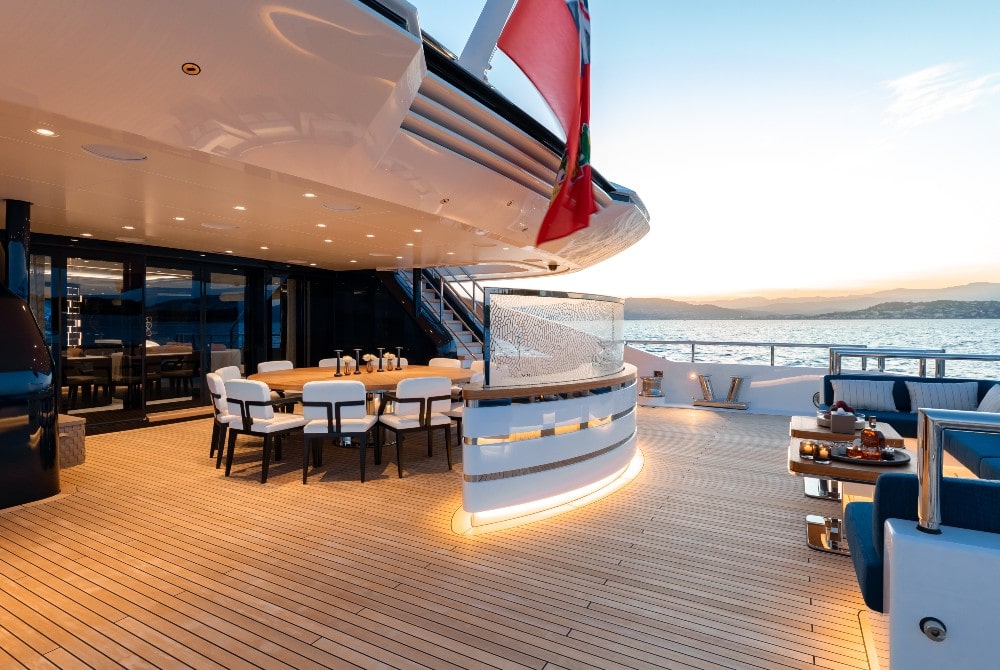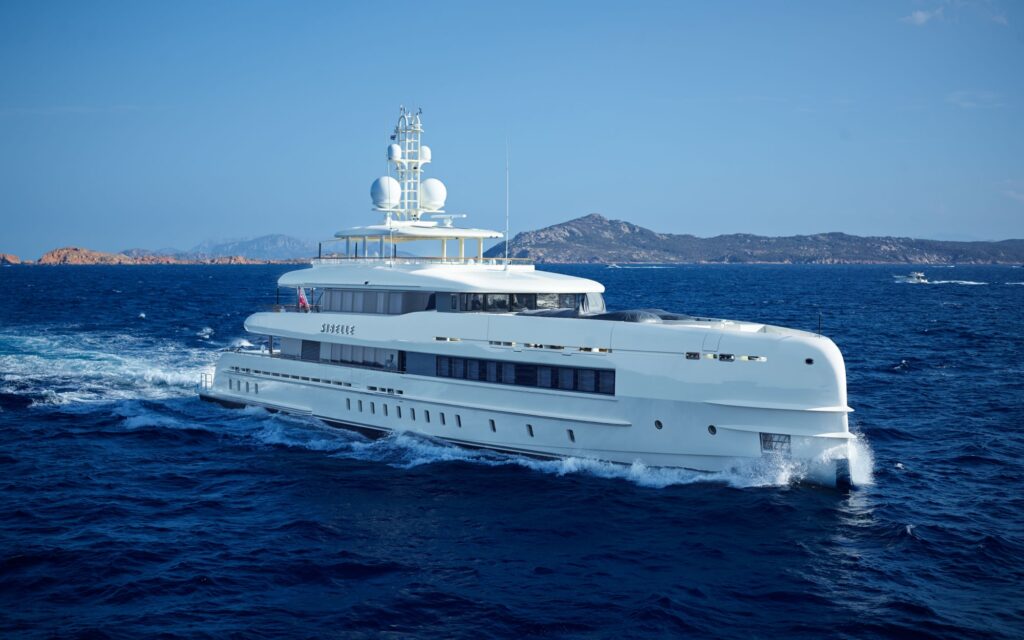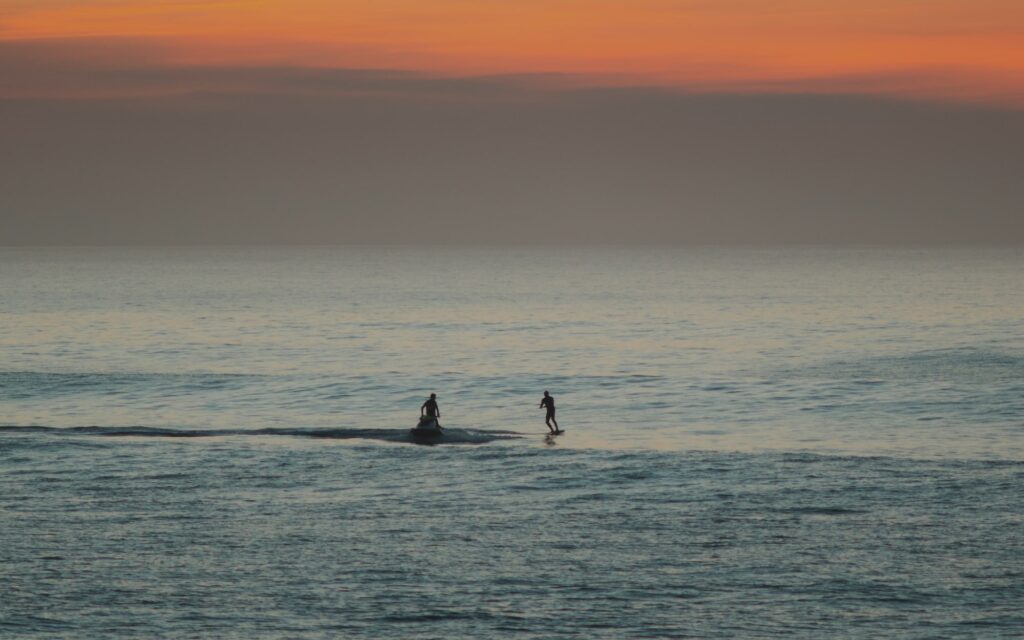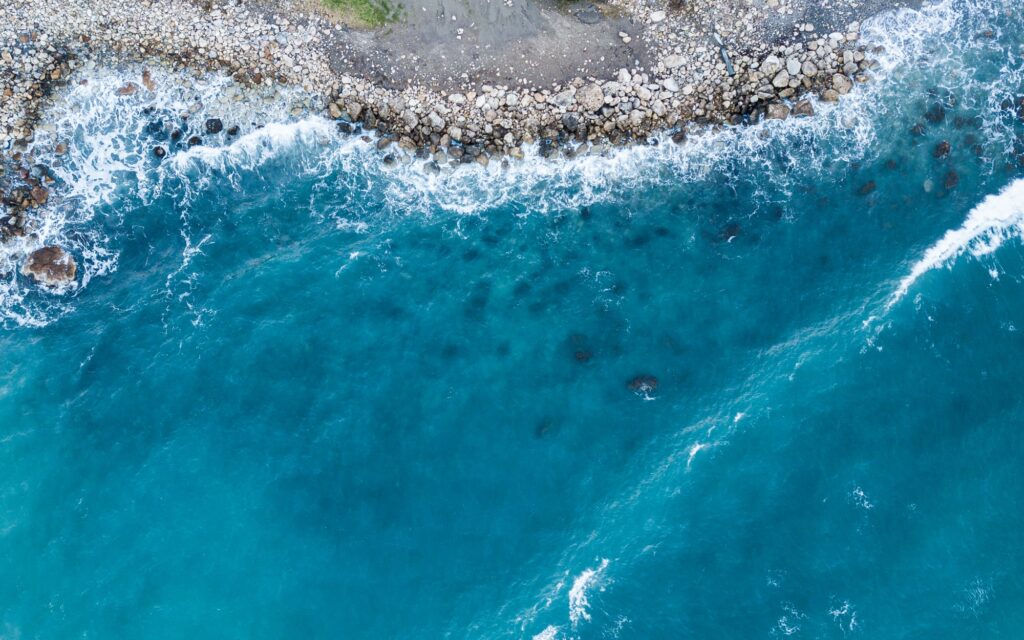When talking about new build yachts, immaculate teak decks often come to mind. However, this long-used material may soon become a thing of the past in superyacht construction due to sustainability issues and the growing pressure for yachts to become more socially responsible.
It is increasingly clear that we cannot maintain our ecosystem at its current pace unless more responsible choices are made, and each individual must be accountable for protecting our natural resources and the planet. According to the WWF, in the time it takes to say the word “deforestation”, a section of forest the size of a football pitch is cut down. That’s every two seconds, every single day. As the overall impact of global deforestation is increasingly understood and accepted, governments are beginning to respond accordingly and implementing stricter regulations across all industries.
Most teak trees grow naturally in southern Asia, and the wood primarily comes from Thailand, Indonesia, and Myanmar. According to a study by the University of Leeds, “Forest clearance in Southeast Asia is accelerating, leading to unprecedented increases in carbon emission. As a result, more than 400 million tonnes of carbon are released into the atmosphere every year as forests are cleared in the region, with that emissions figure increasing in recent years.”
